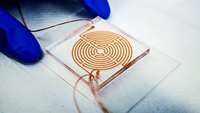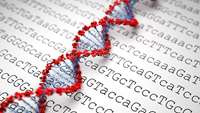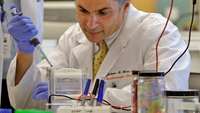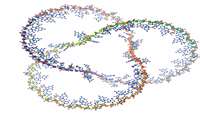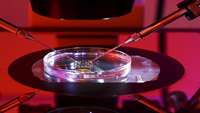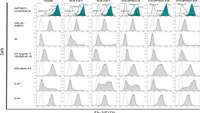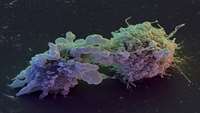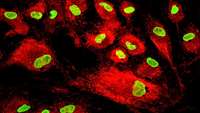Labyrinth chip could help monitor aggressive cancer stem cells
Inspired by the Labyrinth of Greek mythology, a new chip etched with fluid channels sends blood samples through a hydrodynamic maze to separate out rare circulating cancer cells into a relatively clean stream for analysis. It is already in use in a breast cancer clinical trial.
CureOne, Washington University Partner to Link NGS Data With Treatment Information
CureOne, Washington University Partner to Link NGS Data With Treatment Information
Stem cell infusions improved health in frail elderly, UM researchers say
There’s no miracle medicine to combat signs of aging, such as fatigue, muscle weakness and loss of balance.
Good Gut Bacteria Linked to Melanoma Immunotherapy Response
Scientists have uncovered a link between an individual’s gut bacteria and their response to anticancer immune checkpoint inhibitor therapy (ICT). A team of researchers at the Harold C
Single-cell topological RNA-seq analysis reveals insights into cellular differentiation and development
Transcriptional programs control cellular lineage commitment and differentiation during development.
Gene editing breakthrough allows precise fixes of humans and could destroy thousands of most deadly diseases
A new gene editing breakthrough allows scientists to easily snip out problems in genetic code, potentially removing thousands of deadly inherited diseases.
HLA and Histo-Blood Group Antigen Expression in Human Pluripotent Stem Cells and their Derivatives
One prerequisite for a successful clinical outcome of human pluripotent stem cell (hPSC) based therapies is immune compatibility between grafted cells/tissue and recipient.
FDA approves first drug for spinal muscular atrophy
The U.S. Food and Drug Administration today approved Spinraza (nusinersen), the first drug approved to treat children and adults with spinal muscular atrophy (SMA), a rare and often fatal genetic disease affecting muscle strength and movement. Spinraza is an injection administered into the fluid surrounding the spinal cord.
CAR T therapy targeting ICAM-1 eliminates advanced human thyroid tumors
Purpose: Poorly-differentiated thyroid cancer and anaplastic thyroid cancer (ATC) are rare yet lethal malignancies with limited treatment options.
Repair of Torn Avascular Meniscal Cartilage Using Undifferentiated Autologous Mesenchymal Stem Cells
Meniscal cartilage tears are common and predispose to osteoarthritis (OA). Most occur in the avascular portion of the meniscus where current repair techniques usually fail.


